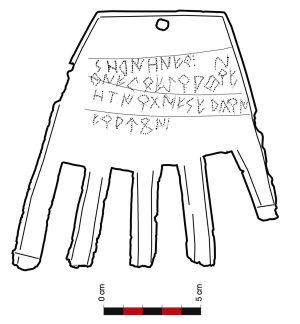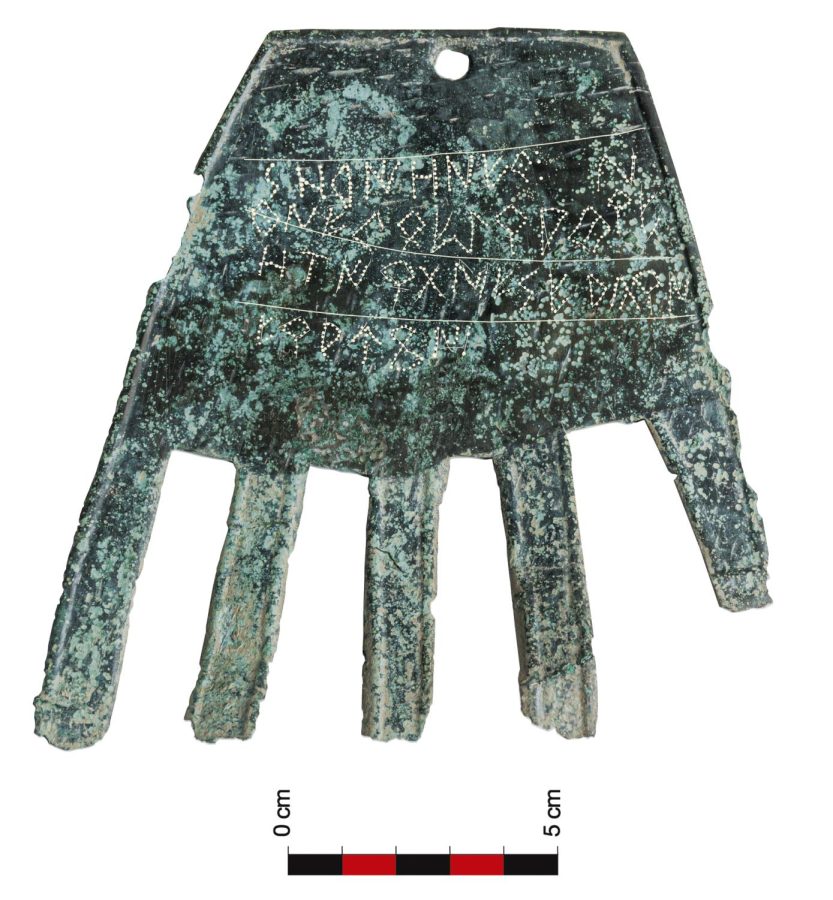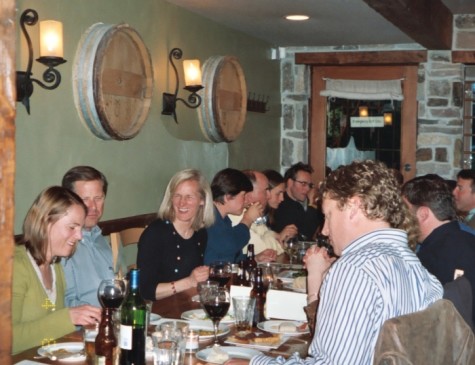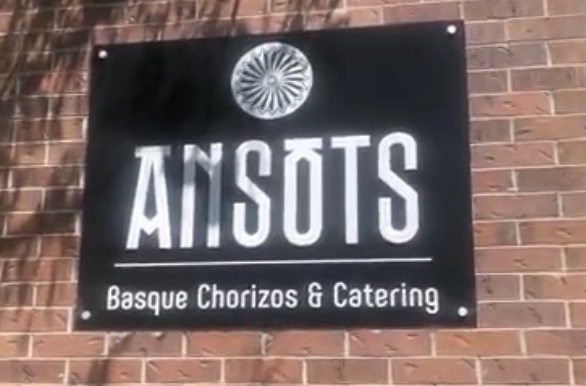The Oldest Written Evidence of the Basque Language is Discovered
S.C. Aranzadi; Govt. of Nafarroa
The Hand of Irulegi
November 17, 2022
A ancient Basque word — the oldest evidence of the written Basque language — has been discovered on a bronze hand known as “the hand of Irulegi” from a 2,000-year-old settlement in the Irulegi archeological site near Iruñea (Pamplona). It has been identified as the Basque word “sorioneko” or “of good fortune,” according to an announcement by the Government of Nafarroa on Nov. 14.

The hand dates back to the 1st century B.C.
“Sorioneku” is the first of five words to have been transcribed. The metallic hand was discovered in June 2021, but it wasn’t until it was analyzed in a laboratory earlier this year that the inscription was uncovered.
This proves that the Basques were using the written language much earlier than was previously thought. They were known as the Vascones at that time and their language was an earlier version of Euskara, which today is referred to as proto-Basque.
Researchers have been excavating a hill where the walls of a medieval castle were located. The remains of an older settlement were uncovered at its base. It is believed to have been inhabited as far back as the 15th to the 11th century B.C. and to have been destroyed during the Sertorian Wars, according to the government’s press release. These wars took place between a coalition of Celts, Aquitanians, Iberians and Roman and Italic rebels fighting against the Roman government from 80 to 72 B.C., according to Wikipedia.

The hand, made of an ancient metallic alloy, was discovered near the entrance to a house, leading researchers to believe it hung on the doorway to a house for protection. The excavation is being led by the Sociedad de Ciencia Aranzadi.
While Euskara (the Basque language) is considered the oldest language of Europe, there’s very little written proof. The language has been mostly carried down orally through the centuries.
READ MORE: What is the Basque Country?
The Basque language has always been surrounded by mystery with regards to its origin. Today, there has been a massive breakthrough on its history and origin ? pic.twitter.com/QVYqzpDjiK
— AlistairDodds ????????? (@AlsDodds) November 14, 2022
Scholar Alistair Dodds posted a series of fascinating informational tweets about the discovery that prompted many comments. Click the image above to see his links and the comments.
Here is the full inscription of the words inscribed on the hand:
sorioneku · {n}
tenekebeekiŕateŕe[n]
oTiŕtan · eseakaŕi
eŕaukon
Other Findings Proved Fake
In 2006, a Spanish archaeologist presented artifacts excavated from the Roman ruins of Veleia, near the Basque city of Vitoria-Gasteiz and claimed that he had uncovered the oldest proof of the written Basque language. The archeologist, Elisio Gil, also claimed to have found one of the earliest representations of the crucifixion of Christ. The discoveries of the ancient graffiti on hundreds of shards of ancient pottery were considered groundbreaking at the time.
However, other researchers became suspicious of the findings and questioned them. Gil and two of his cohorts were eventually found guilty in court of faking the finds.




 Donate
Donate


